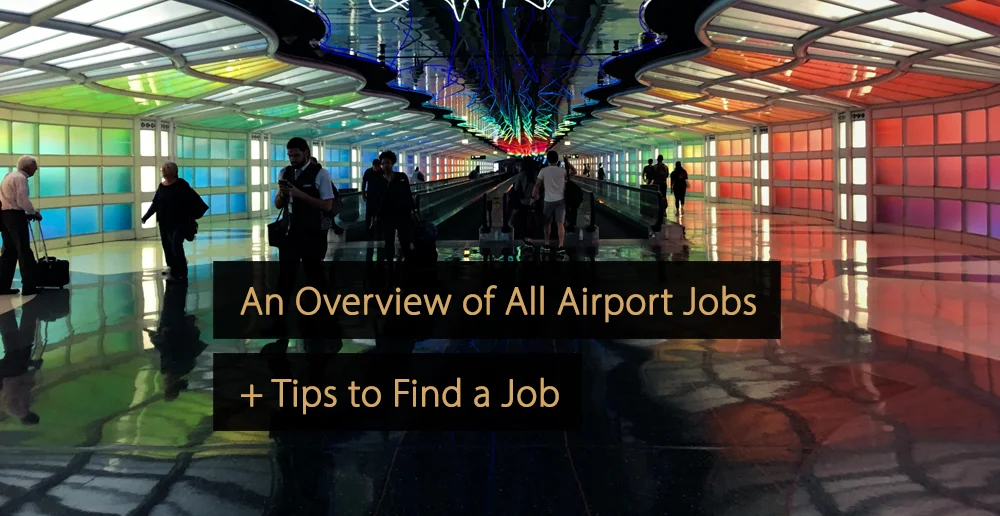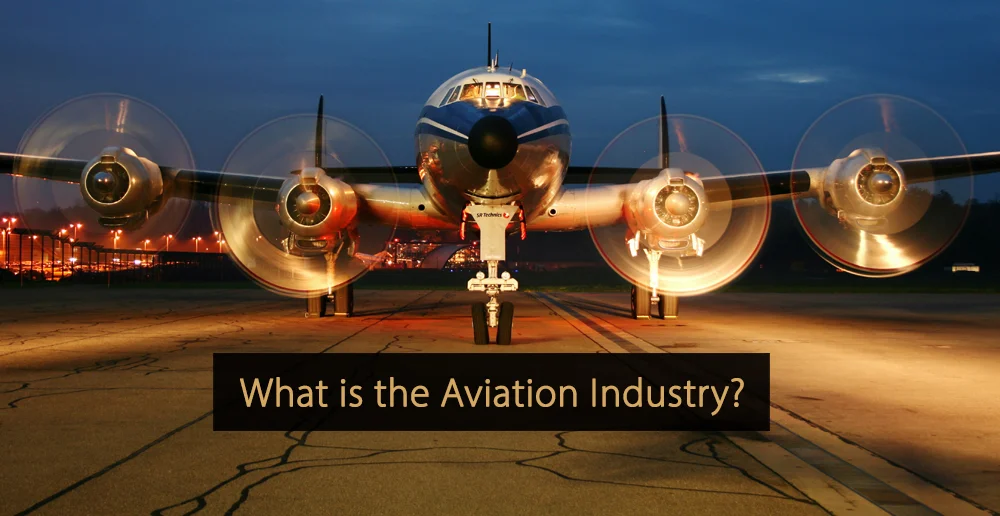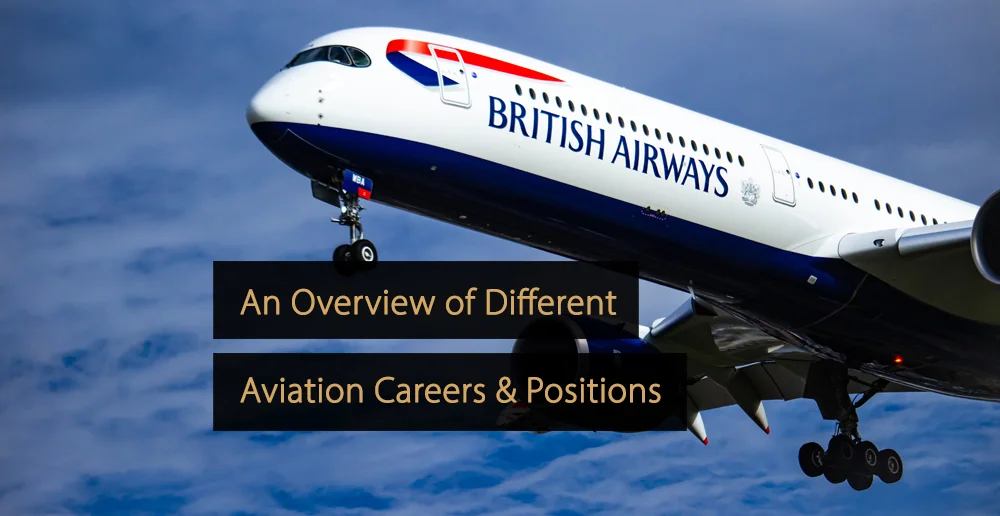Airports play a crucial role in the travel industry, and many different airport jobs are available, offering completely different career paths. Regardless of your skillset, education and experience level, there are options for almost everyone. In this article, you will find an overview of the many job roles up for grabs.
Table of Contents:
- What is an Airport?
- Types of Airports
- Overview of All Types of Airport Jobs
- Airline Careers: An Overview of the Main Jobs
- Video Airport Jobs: A Day in The Life of an Airport Staff
- Job Boards for Seeking Out Airline Vacancies
- List of Companies to Approach for Airline Jobs
- Recruitment Agencies for Finding Aviation Management Jobs
- Best Channels for Finding Airline Manager Jobs
- Tips for Finding Flight Attendant Jobs Online
- Tips for Hiring the Right Airline Staff
- All You Need to Know About the Airline Industry
What is an Airport?
An airport is a name given to a place where aircraft regularly land or take off from. It will typically consist of runways, helipads, and buildings. These buildings are used both to provide passengers with somewhere to wait for their flights and also for things like aircraft maintenance and air traffic control.
There are several different types of airports, and they can also vary drastically in size, as well as the range of services and airport jobs involved. Larger airports used for commercial air travel usually provide additional services, such as restaurants, shops, lounges, and other passenger facilities.
Types of Airports
There are several types of airports, each dealing with different flights and levels of demand, but all offer airport jobs. The Federal Aviation Administration (FAA) has divided airports into 4 categories, which are defined as follows:
Commercial Service Airports
For an airport to be considered a commercial service airport, it must be publicly owned and receive scheduled commercial airline traffic. Additionally, the airport must handle at least 2,500 annual passengers, which is measured by revenue passenger boardings over each calendar year.
Commercial service airports are sometimes further broken down into primary airports, which handle more than 10,000 passengers annually, and non-primary airports, which handle between 2,500 and 10,000 passengers.
Cargo Service Airports
A cargo service airport is an airport that handles aircraft providing cargo-only air transportation. However, to meet the FAA definition of a cargo service airport, the airport must also accumulate a total landed cargo weight of more than 100 million pounds annually.
It is also important to note that this definition applies regardless of any commercial flights catered for. As a result, an airport can be categorized as both a cargo service and commercial service airport simultaneously.
Reliever Airports
Reliever airports, also known as relief airports, can be either publicly or privately owned, and, as the name indicates, they are either designed or designated to provide relief from commercial service airports. This is achieved by taking many smaller flights that would otherwise be destined for busier airports in the region.
In most cases, they resemble larger versions of general aviation airports. In addition to improving capacity at major airports, they can also help spread air traffic out and provide more airport jobs.
General Aviation Airports
To be classed as within the general aviation category by the FAA, an airport must be open for public use. It must not handle more than 2,500 scheduled passengers in any calendar year.
These airports are typically very small and are primarily used by smaller private aircraft rather than large passenger jets. That said, a general aviation airport may still be used for some commercial airline traffic, but it will usually be very limited in frequency and the number of passengers involved.
Overview of All Types of Airport Jobs
The following positions account for the main airport jobs you will likely find when searching for vacancies.
Pilot & Co-Pilot
Pilots and co-pilots have some of the most important airport jobs because they are responsible for flying aircraft safely. The role also involves communicating with air traffic controllers and carrying out pre-flight checks. In addition to having the required flight experience, pilots and co-pilots need to stay calm and make good decisions under pressure. There is also an extensive screening process to go through.
Air Traffic Control
The job of an air traffic controller involves keeping aircraft safe by monitoring their movements and directing pilots, both when they are in the air and when they are on the ground. This may involve providing information, listening to responses, and issuing instructions. It is a role that requires a keen eye for detail, superb communication and concentration skills, and an ability to stay calm, even in the most stressful emergency situations.
Airport Security
Airport jobs focused on security are critical for maintaining passenger safety. The role may involve guiding travelers through screening procedures, asking security questions, checking baggage and/or cargo, and looking out for suspicious behavior. It is a job that requires concentration, stamina, and attention to detail. Although the education requirements are not too tough, there is usually an extensive screening process after you apply.
Airport Police
Airport police are tasked with keeping travelers safe and responding to threats. It involves detecting and responding to suspicious or criminal behavior and, in the most extreme cases, can involve serious personal risk, especially regarding counter-terrorism actions. The requirements for the role vary from one country to the next, but extensive training will be required, and this may include firearms training.
Flight / Cabin Attendant
Flight attendants have a broad range of responsibilities, from providing passengers with safety instructions to serving food and beverages, ensuring passengers are as comfortable as possible, and potentially communicating with the pilot or individuals on the ground. One of the job’s major perks is the ability to travel the world and see new places. However, patience, politeness, and strong customer service skills are necessary if you work in this role.
Airport Engineer
Airport engineers are responsible for ensuring that the airport remains fully functional. This means constantly checking equipment, doing construction work and repairs, and working collaboratively with airport planners and other key airport jobs. It is an advanced role, which will usually require you to possess a relevant degree in engineering or an equivalent field and to complete some job-specific training.
Airport Planner
The aviation industry relies heavily on the work of airport planners, as these are some of the key figures responsible for creating airport layouts. The role includes elements of research, project management, and design, with airport planners helping to decide what facilities should be included, where they should be situated, where airport runways should be positioned, and what the possible consequences are for each of these decisions.
Airfield Operations Specialists
Airfield operations specialists are ultimately responsible for all operations on the airfield. This means overseeing take-offs and landings, collaborating with air traffic control staff, coordinating different teams when they need to work together, responding to emergency situations, providing instructions for maintenance staff, and much more. Entry requirements typically include a degree in aviation, airport management, airport security, or an equivalent field.
Aeronautical Engineer
Aeronautics can be defined as the study of the science of flight. An aeronautical engineer builds on this basic foundation by helping study, design, develop, and manufacture aircraft. An engineering background is necessary, and you must also complete job-specific training. Aeronautical engineering roles are among the highest-paid airport jobs, and demand is expected to grow in the coming years as the need for ‘greener‘ air travel increases.
Aircraft Mechanic
Aircraft mechanics are responsible for carrying out maintenance and repairs on aircraft, which is an immensely important job in an industry where safety is paramount. With this in mind, to work in such a role, you will need to have an excellent eye for detail and the ability to work precisely. There will be an extensive training program before you can work in this field, and the training may also include passing practical and written examinations.
Baggage Handler
Baggage handlers have one of the most physically demanding airport jobs, as they carry or otherwise move luggage. The job involves working in all weather conditions and will require heavy lifting and moving baggage to the right location at the right time. As a result, time management skills are important. However, it is also a relatively accessible role, with very little in the way of firm entry requirements.
Hospitality, Shops, and Other Types of Airport Jobs
On top of the aforementioned airport jobs, there are also plenty of positions associated with hospitality, retail, travel information, ground transportation, and food and beverages. These roles are extremely varied regarding the required duties and skills, but they usually involve delivering high-quality customer service. There may also be a requirement to work unsociable hours due to the 24/7 nature of many airports.
Video: A Day in The Life of an Airport Staff
In the video below, you follow Sammy Yeung, an employee of Cathay Pacific, during her working day.
Airline Careers: An Overview of the Main Jobs
Airlines rely on people with various skills, working in several different roles, including those in airport jobs. However, it is important to understand that airline and airport jobs differ in the available positions, where some jobs are based, and who people are employed.
Read “Airline Careers: An Overview of the Main Jobs”, where you can access a detailed breakdown of the main positions airlines employ people in, along with descriptions of what the jobs involve and who would be best suited.
Job Boards for Seeking Out Airline Vacancies
The nature of many airline and airport jobs means that some degree of churn is inevitable, and, as a consequence, vacancies spring up regularly. However, to get your foot in the door or take the next step in your career, you need to know how to find these vacancies and job boards among the best channels to turn to.
Give our “Job Boards for Seeking Out Airline Vacancies” post a read for more information on the value of job boards, along with a list of some of the best websites to visit for finding airline vacancies.
List of Companies to Approach for Airline Jobs
When finding airport jobs, it is often a good idea to approach airlines directly. After all, when you go straight to the source, you can find jobs not advertised on third-party platforms. Of course, to do this effectively, you will need to identify the best companies to turn to.
In the article, “List of Companies to Approach for Airline Jobs”, you can access more details on the value of the direct approach, along with a list of some of the biggest employers in the airline industry.
Recruitment Agencies for Finding Aviation Management Jobs
Some of the most senior airport jobs are related to aviation management. Whether it is the management of a department or the overall management of a company, recruitment agencies can be invaluable for finding work. Crucially, these recruiters tend to have established relationships with employers and know exactly what they are looking for.
Read “Recruitment Agencies for Finding Aviation Management Jobs” and learn more about the benefits of recruitment agencies and find some of the best agencies for exploring aviation management opportunities.
Best Channels for Finding Airline Manager Jobs
Airline managers are responsible for ensuring their airline performs to its full potential. To work in such a role, you need to have excellent industry knowledge, significant experience in airline or airport jobs, and the right skills. Moreover, you will need to use the right websites and platforms to find vacancies.
Use the “Best Channels for Finding Airline Manager Jobs” article to learn much more about airline manager jobs, the main duties, the entry requirements, and the best channels to use when applying.
Tips for Finding Flight Attendant Jobs Online
Flight attendants have essential airport jobs, helping keep passengers safe on flights and providing customer service. It is a demanding role that offers excellent rewards, including the opportunity to travel the globe. For this reason, flight attendant jobs are in high demand, and your application needs to be high in quality.
Check out our “Tips for Finding Flight Attendant Jobs Online” post for more information on flight attendant jobs and practical tips on finding and applying for these roles using online platforms.
Tips for Hiring the Right Airline Staff
Whether you are in charge of an airline or just involved in the hiring process, you must take the necessary steps to ensure you are attracting high-quality candidates to work in the various airport jobs you have available. This will involve using the right channels, clearly defining the job, and taking additional steps.
Read the “Tips for Hiring the Right Airline Staff“ article for more insights, including advice on defining job roles, conducting interviews, and advertising vacancies on the right websites and online platforms.
All You Need to Know About the Airline Industry
No matter what airport jobs you are interested in, learning as much as you can about the airline industry can be valuable. This might mean, for example, having a strong knowledge of the main airlines, the different airline types, how people book airline tickets, and how the industry is expected to change in the years ahead.
By reading “Airline Industry: All You Need to Know About the Airline Sector”, you can access that information, along with additional insights, definitions, and useful links to further reading.
The sheer variety of airport jobs available helps ensure there are roles for almost anyone, from entry-level customer service positions to aviation management personnel, engineers, pilots, or co-pilots. Each of these roles is crucial to the successful day-to-day operations, irrespective of the type of airport in question.
More Tips to Grow Your Business
Revfine.com is the leading knowledge platform for the hospitality and travel industry. Professionals use our insights, strategies, and actionable tips to get inspired, optimize revenue, innovate processes, and improve customer experience.Explore expert advice on management, marketing, revenue management, operations, software, and technology in our dedicated Hotel, Hospitality, and Travel & Tourism categories.
This article is written by:
Hi, I am Martijn Barten, founder of Revfine.com. With 20 years of experience in the hospitality industry, I specialize in optimizing revenue by combining revenue management with marketing strategies. I have successfully developed, implemented, and managed revenue management and marketing strategies for individual properties and multi-property portfolios.









I’m interested in finding a job at an airport. What are the different types of airport positions?
Hi Syllable, Maybe the job boards mentioned in the article “List of Job Boards to Find a Job at an Airline” will help you explore the different job types available in the airline industry.
I am also seraching for a job in the airline industry. Thank you for the information.
This is an informative and comprehensive overview of the various types of airport positions available. It’s interesting to learn about the different roles that contribute to the smooth functioning of an airport, from ground crew members to customer service representatives. Thank you for sharing this information.